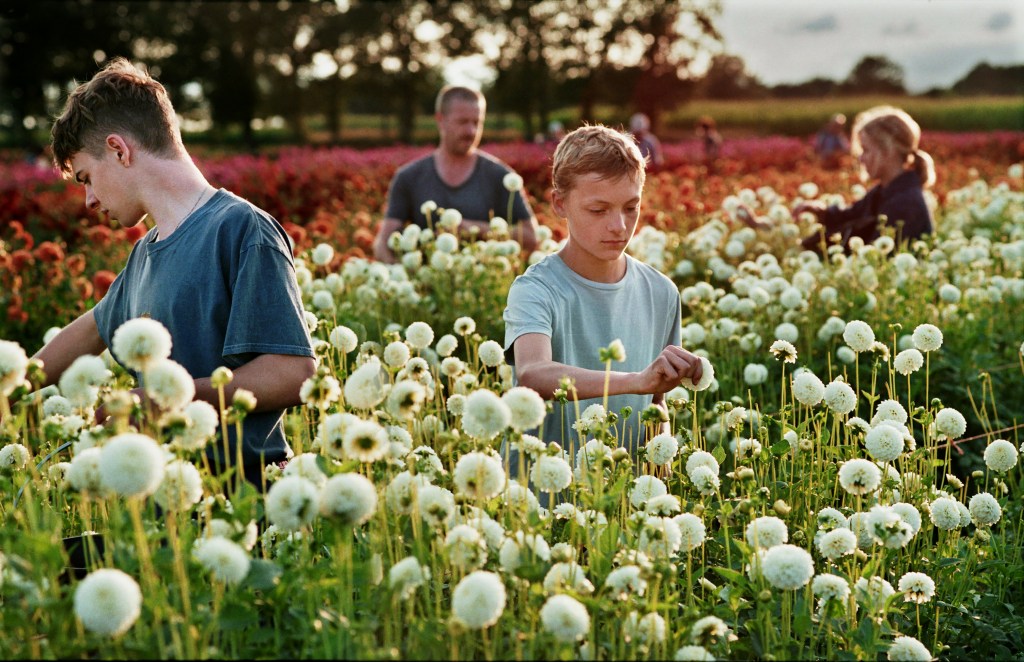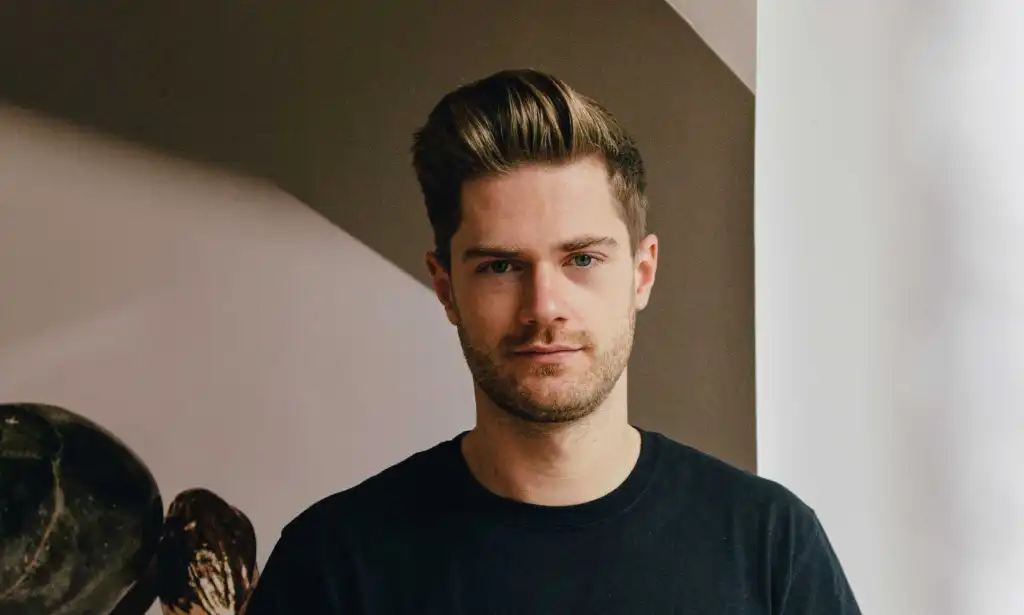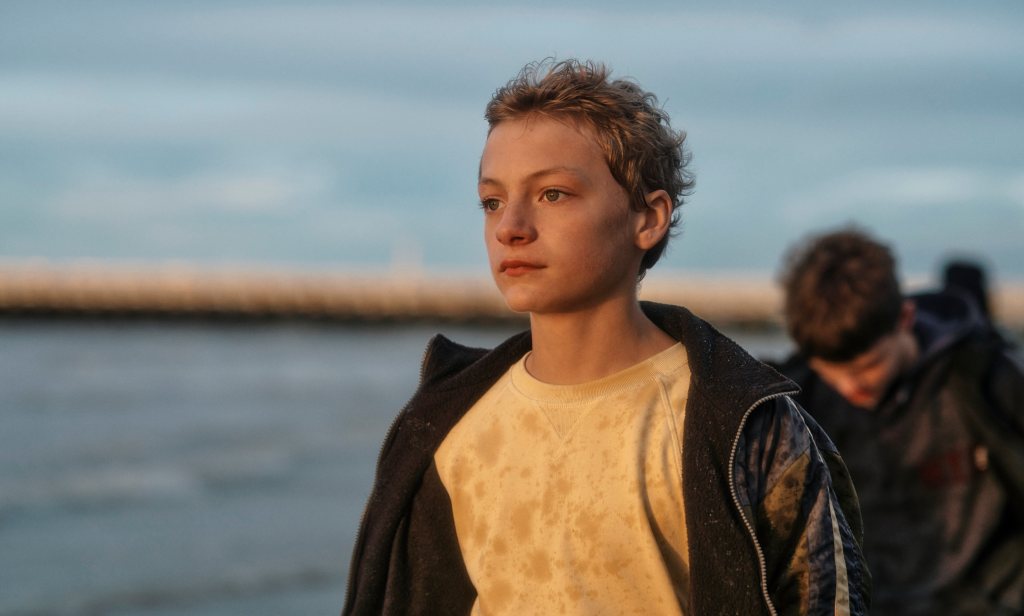Lukas Dhont on his Oscar-nominated film Close: ‘We live in a world that is afraid of a tender man’

Eden Dambrine and Gustav De Waele as thirteen-year-olds Léo and Rémi in Lukas Dhont’s ‘Close’ (KRIS DEWITTE)
In Lukas Dhont’s Close, a beautiful boyhood friendship is shattered by societal norms. PinkNews talks to the Oscar-nominated director about masculinity, queerness and making his coming-of-age tale.
If you don’t yet know the name Lukas Dhont, that’s all about to change. After scooping the grand prize at the Cannes Film Festival last year, the Belgian filmmaker’s heart-wrenching film Close made waves in January when it picked up an Oscar nomination in the international feature film category, and has since moved audiences around the world to tears.
And what a film it is. Directed and co-written by Dhont, it stars newcomers Eden Dambrine and Gustav de Waele as 13-year-olds Léo and Rémi, life-long best friends who have a beautiful and intense bond. When the pair return to school after a summer break spent running through peony fields, the pressure of the outside world begins to rupture their once unbreakable bond.
A film interrogating the deterioration of a boyhood friendship because of the toxic expectations of masculinity couldn’t be more timely right now, and, according to Dhont, the project was made to retaliate against a society that “has given up [on] the possibility of any care” for young boys.
“When we actually listen to 13-year-old boys speak about each other, we are reminded that that is what they love – they love each other, they love their best friends,” the director tells PinkNews. “They say they would go crazy without [each other]. It’s all around, and yet these are testimonies that we rarely see depicted on screen.”

Before Léo and Rémi’s closeness is corroded by the harsh intrusion of gender roles, Close shows how physically and emotional intimate boyhood friendship can be. Their connection, Dhont explains, is at the core of their lives, and, while casting the roles, he looked for two actors who understood “the power and the heartbreak that friendship can offer”.
“We live in this world that is very afraid of a tender man”
Not only was it important to Dhont that the boys developed a true friendship, but so too was understanding the “pressures of masculinity in a world that often depicts it as something very brutal”.
After months of searching, he found De Waele, who’d been studying French at a dance academy in Belgium, and Dambrine, who he spotted on a train to Ghent.
At the heart of Close, Dhont explains, is the question of why we, as an audience and society, “don’t always validate friendship as a mode of living”, consequentially barring boys and all children from accessing a healthy culture of emotional expression and connection.
“Young men learn from early on that intimacy is something to be looked for in sex or in romance, but not in male friendship,” says Dhont. “We live in this world that is very afraid of a tender man.”
Dhont, who came out as gay as a young adult, also says that making Close was something of a cathartic experience. As an adolescent, he actively distanced himself from certain relationships, while he was also bullied at school after performing a routine to Christina Aguilera’s “Fighter”.
We see his fears reflected in Léo, who pushes Rémi away after the pair are interrogated about why they’re always together. The tragic erosion of their intimacy is, of course, the result of the boys becoming aware that their friendship does not look a itt “should” – a feeling Dhont knows all too well.
“There was this point in my growing up, where I started to fear intimacy with other young men, and therefore pushed away people that I really didn’t want to push away,” he recalls. “I deprived myself of so much love that could have existed freely.
“Growing up, I always thought that that was really linked to my queer identity or my queer experience, but what I actually understood later in life, is that it was more about me being a young man than it was about being gay or straight.”
‘I don’t care about the sexualities of these characters. I really don’t. They can be anything because Close wants to say: we don’t need to know’

Close is undeniably a queer-coded film because of its themes of otherness, betrayal and isolation, and Dhont is aware that the film will open “wounds” for many queer viewers, who are all-too familiar with the feeling of being different to one’s peers without fully understanding why.
“[Queer people] know what it means to grow up and be told that certain things are expected or accepted, and they know that, sometimes, some of us betray parts of ourselves in order to belong.”
That being said, Dhont emphasises that labels shouldn’t be put on the nature of the boys’ relationship. Scrutiny of their sexuality, after all, would surely be part of the societal norms it seeks to critique.
“I don’t care about the sexualities of these characters,” he says emphatically. “I really don’t. They can be anything because for what we want to say, we don’t need to know. It’s not about that.”

What Close wants to say is exemplified in the film’s sharp, devastating turn around the midway point that leaves you feeling winded. After Léo begins to distance himself from his best friend, things take a downward spiral for Rémi in the kind of chilling way every parent has nightmares about.
Aside from questions of guilt over Léo’s actions, the world of Close, Dhont explains, aims to “show what happens when tenderness gets smothered, and when we do not validate or realise the fragility of our connections”.
Close, directed by Lukas Dhont, is in cinemas now.
How did this story make you feel?

